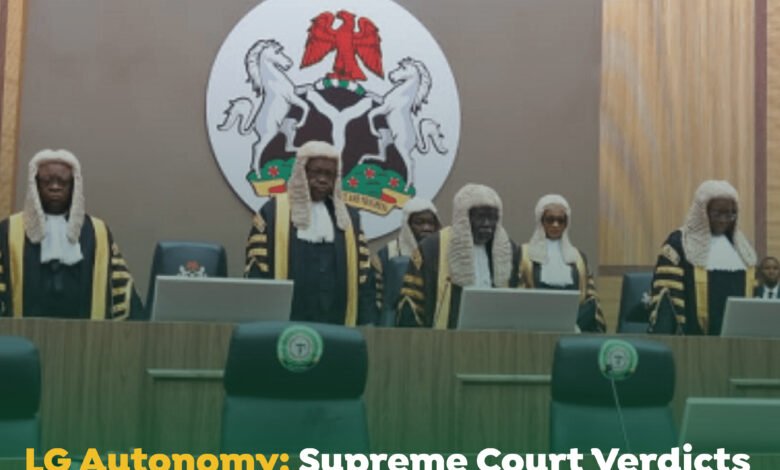
The Supreme Court of Nigeria has finally delivered the long-awaited verdict on the financial autonomy of the 774 local government areas in the country. The apex court, in its lead judgment read by Justice Emmanuel Agim, observed that the refusal of the state government on financial autonomy for local governments has gone on for over two decades.
He stated that the state governors, acting in their stead, have since stopped providing local governments with the funds intended for them. He also dismissed the preliminary objections of the defendants (state governors), adding that the arrangement is not only illegal but also undermines the development of rural areas.
‘Not closer to the people, anymore’
As the third tier of government considered closer to the people at the grassroots, local government areas have grappled with scores of existential threats, financial autonomy being the most significant. In facts the state government has been the key to their survival for more than two decades.
Analysts noted that the state government’s meddling in local government affairs has been counterproductive to its core mandate of getting closer to the people. They asserted that the verdict was not only heartwarming but also reassuring. “Now more than ever,” said a public affairs analyst, Adewale Lukman, “local government areas will truly be closer not farther to the people again.”
’36 state governors and misconduct’
The attorney general of the federation, Lateef Fagbemi (SAN), had sued the 36 state governors in May 2024 on behalf of the federal government over alleged misconduct of local government funds. Fagbemi’s claim was a sequel to the increased allocation to the local government in the wake of fuel subsidy removal.
Data from the Revenue Mobilization Allocation and Fiscal Commission (RMAFC) indicated that the federal government gets 52.68%, states get 26.72%, and LGs get 20.60% of the country’s revenue allocated and subsequently disbursed by the Federal Account Allocation Committee (FAAC).
In the suit, the AGF had sought an order preventing the governors from arbitrarily dissolving democratically elected councils. The defendants in the suit, the 36 state governors, opposed the AGF for instituting the case. The latest developments have put one of the country’s longstanding legal fisticuffs to rest.
‘A constitutional democracy, no so really’
President Bola Tinubu had taken a swipe at state governors over their handling of local government affairs. “We are running a constitutional democracy,” the President remarked on Thursday, May 30, 2024, at a meeting with the leadership of the Arewa Consultative Forum (ACF) at the Presidential Villa, Abuja. “I will ask you to summon the governors. I’m doing my very best to boost the country’s revenue base. They must be equally sympathetic and urgently consider the needs of the local people.”
The President stated that the majority of Nigerians live in local communities, where they work, farm, and live. , we must not cling to numbers if local governments are not effective in delivering services.” We have 774 local government areas, but are they truly effective? Do they solve problems for Nigerians? Do they coordinate development programming with the state and federal governments?
‘A big win with cautious optimism’
Analysts lauded the Supreme Court judgment, saying it was the most landmark verdict by the apex court in recent times. They posited that a truly financially autonomous local government council will be crucial to engineering development in rural areas. Abdullah Rabiu, a seasoned commentator, described the judgment as a big win but called for cautious optimism as state governors are likely to fight back through the backdoor against it. “Do expect state governors that have depended on local government allocations to fund their frivolities and vanities to sit back and watch as their main sources of accounted money slip off their fingers.”
He called on Nigerians to be eternally vigilant as the battle over the souls of the 774 LGAs rages on.





